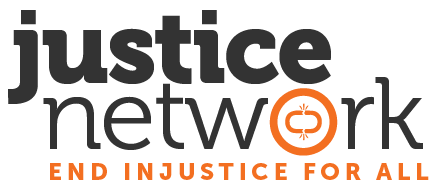
“I really like your shoes.”
The young woman startled me as we waited in line for the ladies room. We were at a concert at Citi Field with 50,000 other people, and it seemed they all were waiting in one line or another.
“Thanks so much.” I replied, then added, “They’re TOMS.”
Those two words, “They’re TOMS” led us into a discussion about social justice, human trafficking, and buying products known to be ethically produced without the use of slave labor. I shared our Justice Network website with her and talked about how ordinary people like us can make a difference in the world by the words we say and the choices we make.
It would have been so easy to just say thanks and talk about the concert or focus on the issue at hand (the endless bathroom line!), but I would have missed out on sharing about a topic of much greater importance.
This got me to thinking about the importance of being intentional in our conversations, with families, friends, or strangers, both in person and on social media.
It’s so easy to click “like,” but what if we also clicked “share” to spread the word to our network connections?
What if we looked for opportunities to share our heart’s burden for justice when engaged in conversations? One little comment could lead to an incredible interaction.
I know. A few years ago, I had an interest in raising awareness, but didn’t know what to do about it. One day, I saw a post on a friend’s Facebook page about purchasing items made by survivors of human trafficking. I left her a comment that I was interested in this issue. Then a random Facebook friend left a comment, “If you do something, let me know.”
I stared at that comment and pondered it thinking, “Will this be one more time where I say I want to do something, yet actually do nothing, or this time will I actually DO something?”
Well, that was one of several sparks that led to the creation of Justice Network.
Of course, it’s not necessary to start or to join an organization to do something that makes a difference. Just being intentional in personal or online conversations will spread the word. If you tell two people and they tell two people, then seven people will be informed. And so on.
So what can you do within your networks?
1. Be informed yourself.
- Follow Justice Network and other organizations through their websites and social media. Read books or watch movies.
- Buy ethically. Look for the fair trade label or check our pages for ethically produced merchandise.
2. When having a conversation, look for common ground to start the discussion. It could be cute shoes or where you’re buying holiday gifts or just a “have you heard?” but look for opportunities to share stories or information about a subject you are passionate about.
3. Take action, and then let others know.
- The NJ Coalition Against Human Trafficking has a toolkit with lots of ideas for community, schools, etc.
- Sign petitions like this one at Change.org:
- Contact your Congressmen. Here’s an easy online form for the current bill pending in Congress.
“Nobody made a greater mistake than he who did nothing because he could only do a little.” Edmund Burke
-Written by Co-Founder Susan Panzica
